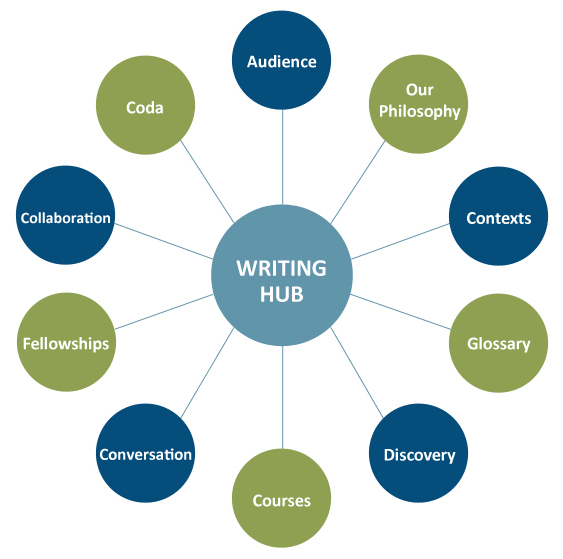AUDIENCE
University writing is often misconstrued as formulaic, formal, and passive in order to qualify as academic. In the Writing Hub, we help students develop their communicative ability to identify context, audience, and purpose of a given writing situation, and to adapt their writing style appropriately. In doing so, students engage in rhetorical practice and critical thinking to gain the knowledge necessary to transition between different genres, courses, and disciplines. This knowledge also helps students achieve the multimodal fluency necessary to transition successfully from the university to the professional world.
Joseph Williams and Gregory Colomb (2010) identified writing as a social act in that consideration of one’s audience, or reader, is of utmost importance in order to write in a style that is also ethical. By approaching style with a rhetorical perspective, students are able to see how logos, pathos, and ethos are evident in the very structure of writing. Students are able to connect the sociality of writing with how they are constructing sentences to form paragraphs and organizing paragraphs to produce cohesive, clear, and engaging writing. Knowing their audience carries over into each aspect of writing, allowing students to see how their use of logical structures, appropriate tone and voice, and attention to grammar and mechanics give their writing logos; how their word choice, emphasis through structure, and use of language draw on pathos; and how their use of credible sources and incorporation of research in an ethical manner build their ethos as writers.
The Writing Hub’s approach to teaching writing gives students the rhetorical knowledge necessary to analyze their audience and then apply their understanding of audience to the composition of a variety of texts using styles that are appropriate for the given discipline and purpose. By encouraging students to read against the grain (Pullman, 2012), critically engage with a text, and interact through collaborative activities and peer review, we are able to show them the link between critical thinking skills and the ability to write critically for real audiences.

